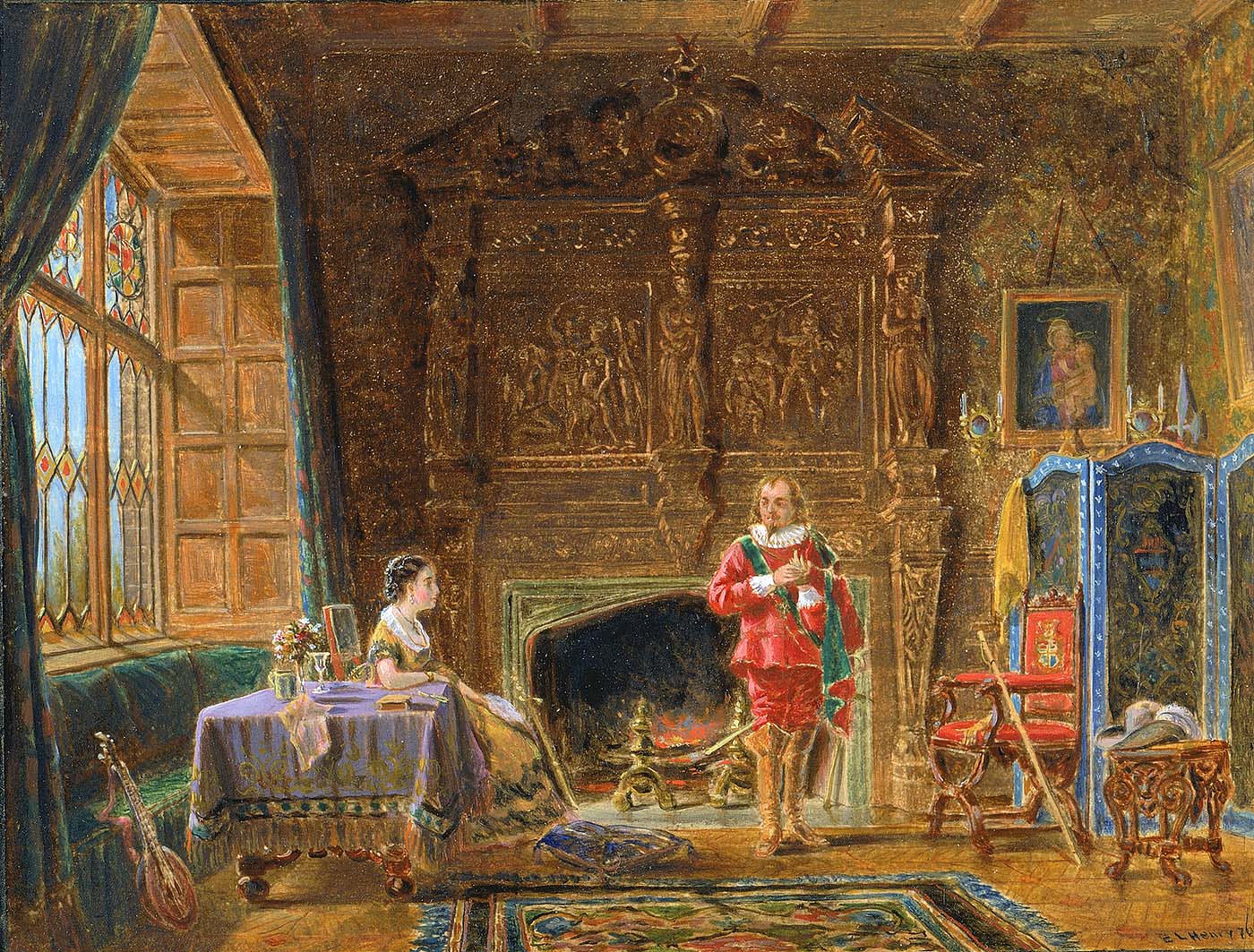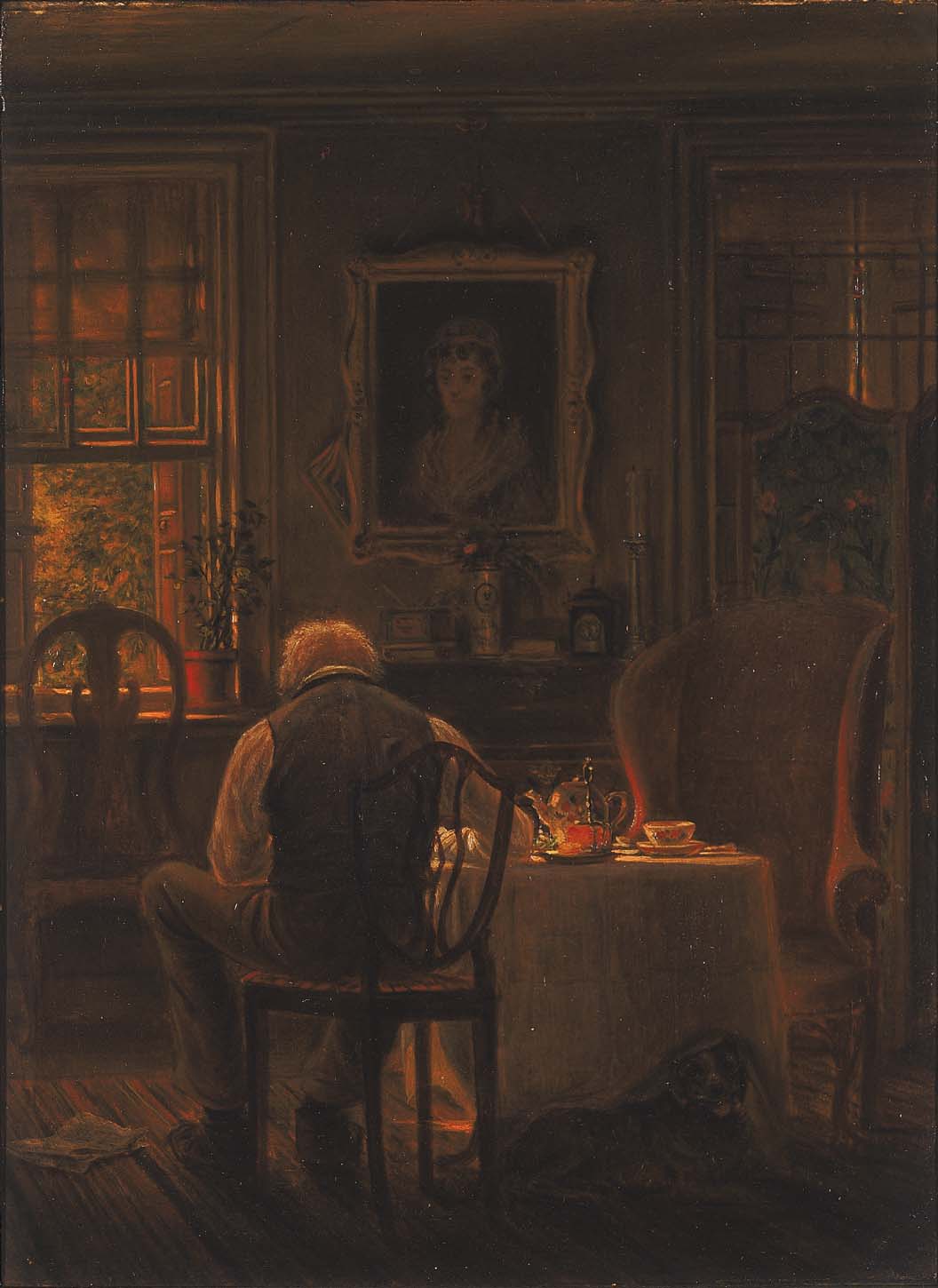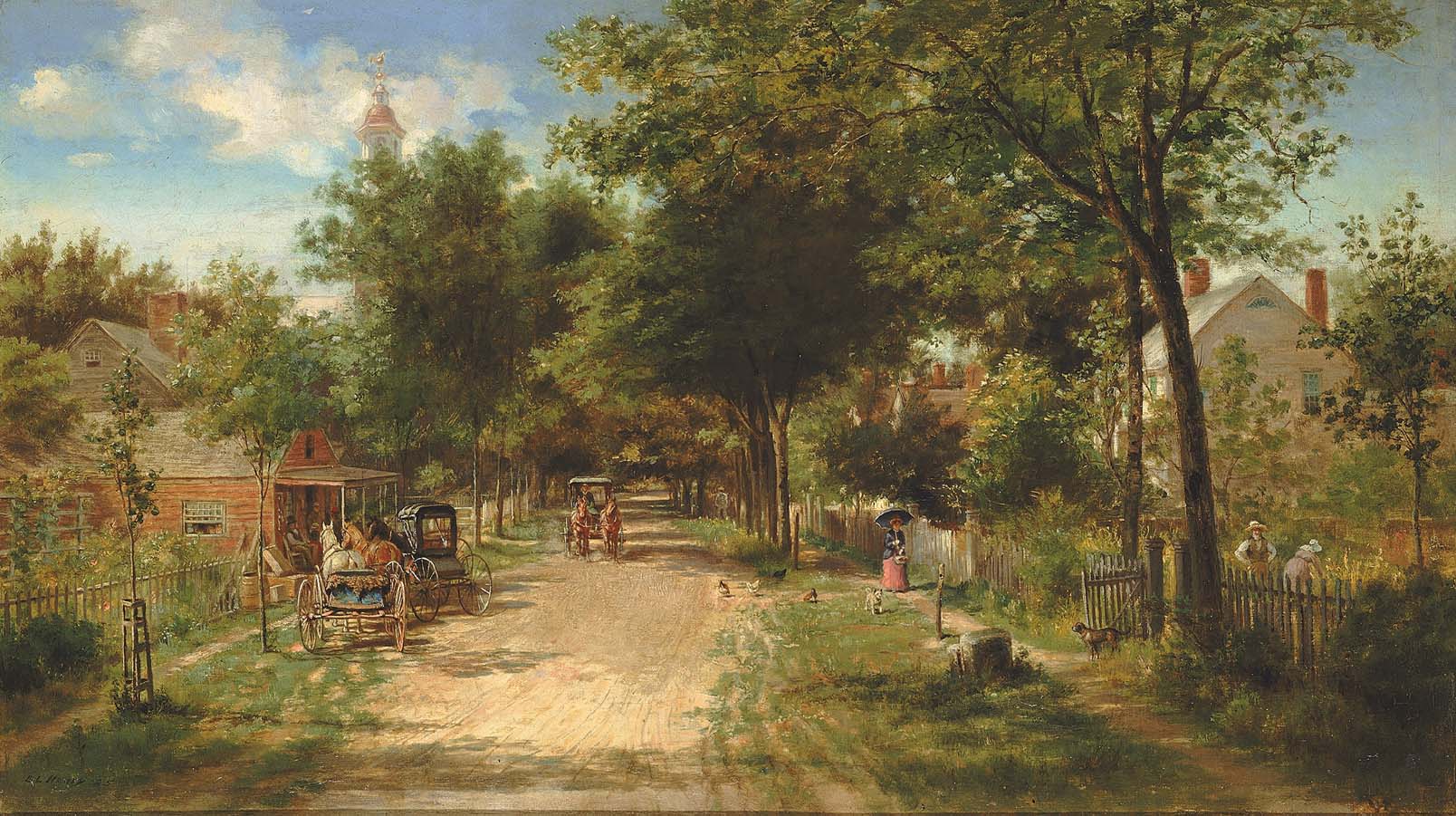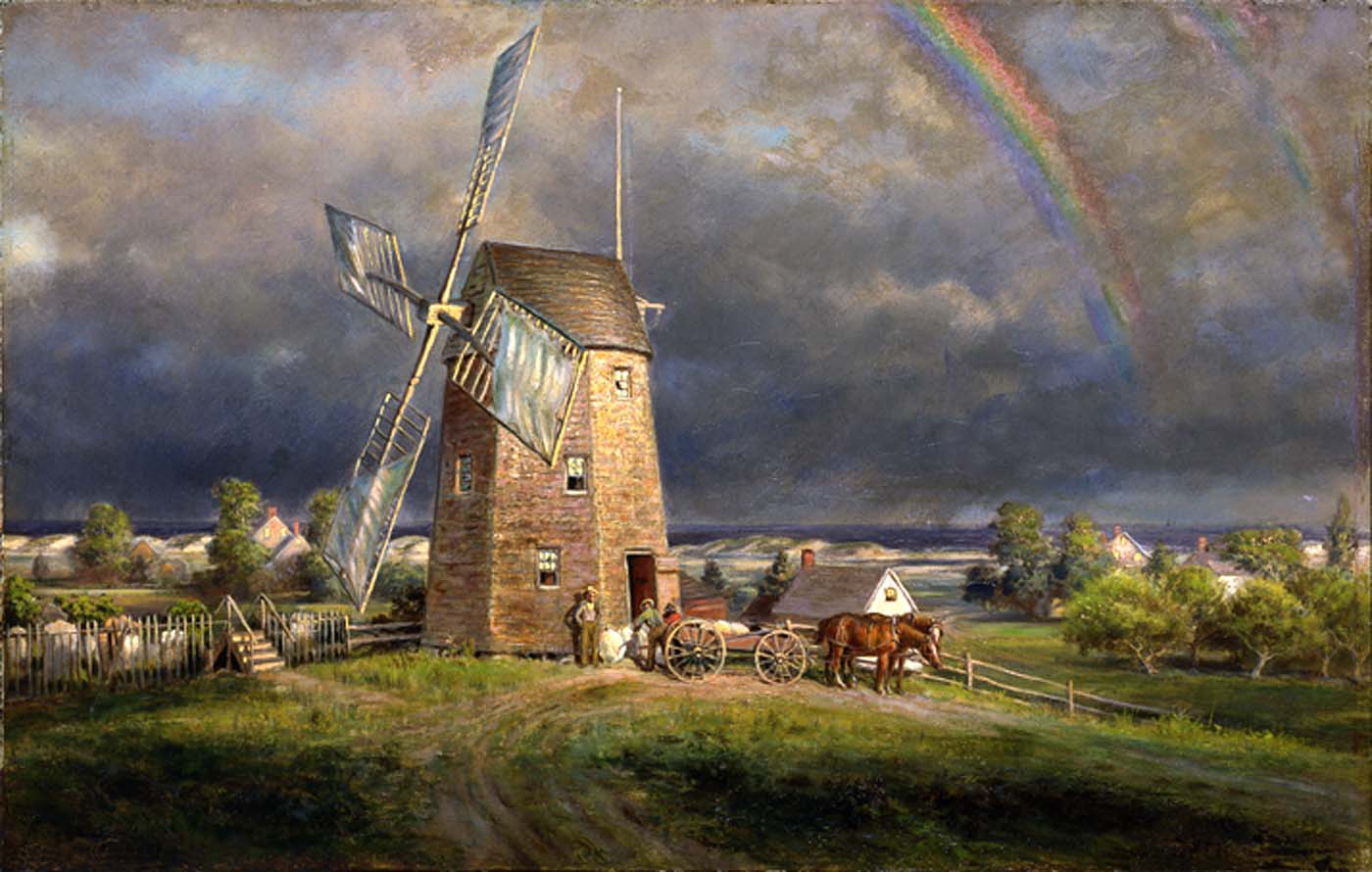Edward Lamson Henry
Edward Lamson Henry was seventeen when he went to study at the Pennsylvania Academy of the Fine Arts, and while he was there he befriended a noted antiquarian named William Kulp. Their friendship led Henry to an obsession with antiques, which he collected for the rest of his life. He used his carriages, Oriental rugs, costumes, porcelains, and various architectural relics as props in his paintings of bygone days. After a period of study in Paris, he set up a studio in New York's prestigious Tenth Street Studio Building. When the Civil War broke out, Henry wanted to take part in the events and see "the pictorial side" of war, so he took a job as a captain's clerk on a ship. In 1883, Henry designed a new home called Na-Pe-Nia in Cragsmoor, New York, using remnants rescued from old buildings in New York City. He died of pneumonia and was buried in his wife's family's plot in Johnstown, New York, where a tombstone in the shape of a palette marks his grave (The Works of E.L. Henry: Recollections of a Time Gone By, 1987)






